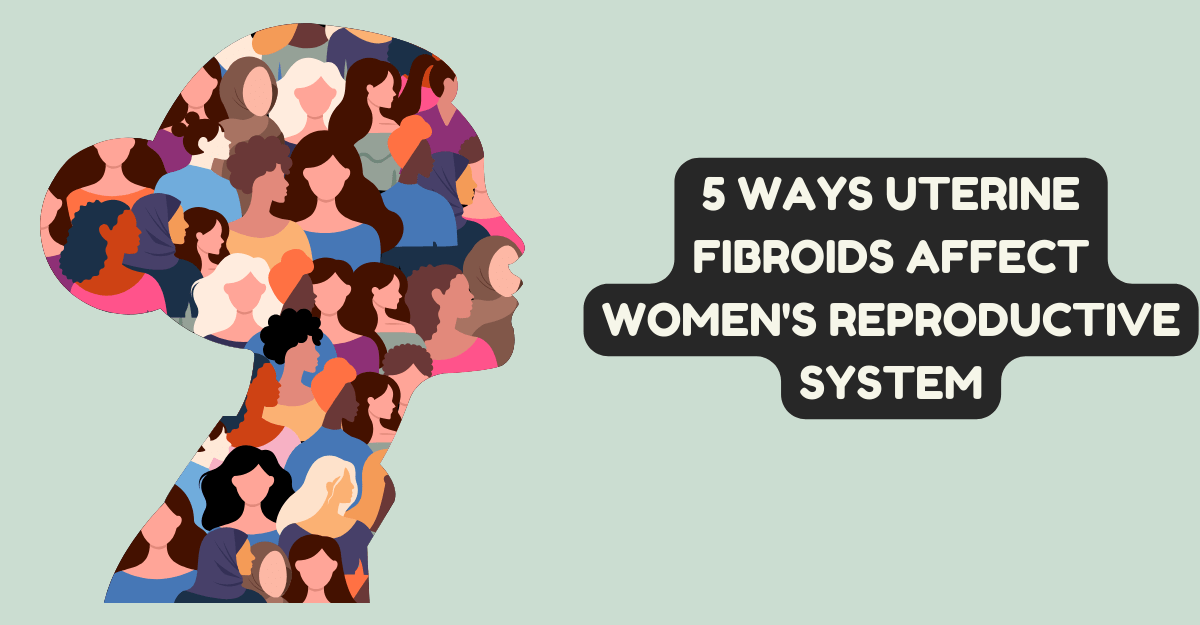
5 Ways Uterine Fibroids Affect Women’s Reproductive System
Uterine fibroids are a common health concern affecting millions of women worldwide. These benign tumors can have a significant impact on the reproductive system. Understanding their effects is crucial for managing symptoms and maintaining overall health. This article explores five key ways uterine fibroids influence women’s reproductive health. From menstrual irregularities to fertility challenges, we’ll delve into the complexities of this condition.
1. Impact on Menstrual Cycles
Uterine fibroids can significantly disrupt menstrual cycles, leading to heavy and prolonged periods. This condition, known as menorrhagia, can result in anemia due to excessive blood loss. Fibroids may also cause painful periods, a symptom termed dysmenorrhea. For many, these menstrual irregularities affect daily activities and overall quality of life. To address these challenges, uterine fibroid treatment in Memphis, TN offers various options, including medication and minimally invasive procedures. Consulting with a healthcare professional is crucial for personalized treatment plans.
In addition to heavy bleeding and pain, fibroids can cause irregular menstrual cycles and spotting between periods. The pressure from larger fibroids may even mimic pregnancy symptoms, such as frequent urination. It’s important for women experiencing these symptoms to seek medical advice for proper diagnosis and treatment. Regular monitoring and treatment adjustments are crucial for managing symptoms effectively. Lifestyle changes and holistic approaches may also complement medical treatments in managing fibroid-related symptoms.
2. Fertility and Pregnancy Complications
Uterine fibroids can pose challenges to fertility and pregnancy. They may obstruct the fallopian tubes, hindering sperm and egg interaction. Fibroids can also impact the uterine lining, affecting embryo implantation. During pregnancy, fibroids can lead to complications such as preterm labor and placental abruption. It’s crucial for women with fibroids to consult healthcare professionals for tailored management strategies. Regular monitoring during pregnancy is essential to mitigate risks. Treatment options vary, focusing on preserving fertility and ensuring a safe pregnancy. Early intervention and careful planning are key for women with fibroids who are considering pregnancy.
3. Pelvic Pain and Pressure Symptoms
Pelvic pain and pressure are common symptoms of uterine fibroids. The size and location of fibroids can cause discomfort or a sensation of fullness in the pelvic area. This pressure can also lead to lower back pain or leg pain. Some women experience an increased frequency of urination or difficulty emptying the bladder. Managing these symptoms often involves a combination of medical treatments and lifestyle adjustments. Options include medication, non-invasive procedures, and surgical interventions. Holistic approaches, such as yoga and acupuncture, may also provide relief. Timely intervention can significantly improve quality of life and reduce discomfort.
4. Urinary Tract and Bowel Function Effects
Uterine fibroids can impact urinary tract and bowel function due to their pressure on adjacent organs. Larger fibroids may compress the bladder, leading to frequent urination or urinary incontinence. In some cases, fibroids can obstruct the ureters, causing kidney problems. Bowel function may be affected as well, with symptoms like constipation or bloating. It’s essential for individuals experiencing these symptoms to seek medical evaluation. Treatment options vary, but addressing fibroids can alleviate these urinary and bowel issues. Early intervention and appropriate management are key to maintaining overall health and well-being.
5. Emotional and Psychological Impact
The emotional and psychological impact of uterine fibroids can be significant. Women may experience stress, anxiety, or depression due to symptoms or fertility concerns. The physical discomfort and pain associated with fibroids can also lead to emotional distress. Body image issues may arise from visible abdominal enlargement or weight gain. Support from healthcare professionals, counseling, and support groups can be beneficial in managing these emotional challenges.
Additionally, the impact on daily life and relationships can be profound. The unpredictability of symptoms can affect work, social activities, and intimate relationships. Women may feel isolated or misunderstood by those who are unaware of the condition’s severity. Education and open communication are key in fostering understanding and support. Holistic approaches, including stress-reduction techniques and mindfulness, can also aid in emotional well-being.
Looking Ahead: Managing Uterine Fibroids for Reproductive Health
Managing uterine fibroids is essential for preserving reproductive health and well-being. Early detection and appropriate treatment can mitigate their impact. Women should prioritize regular check-ups and open communication with healthcare providers. Advances in medical science offer promising solutions for those affected. Together, these strategies ensure a proactive approach to maintaining reproductive health amid the challenges posed by uterine fibroids.






